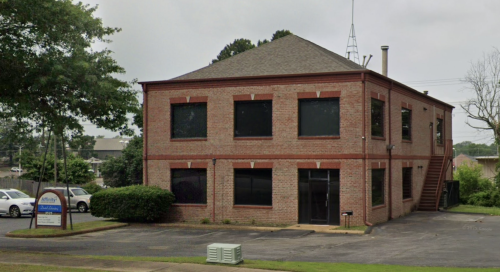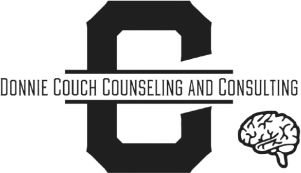

Donnie Couch Counseling and Consulting
Treatment Focus
This center treats primary substance use disorders and co-occurring mental health conditions. Your treatment plan addresses each condition at once with personalized, compassionate care for comprehensive healing.
Primary Level of Care
Outpatient treatment offers flexible therapeutic and medical care without the need to stay overnight in a hospital or inpatient facility. Some centers off intensive outpatient program (IOP), which falls between inpatient care and traditional outpatient service.
This provider hasn't verified their profile's information. Are you the owner of this center? Claim your listing to better manage your presence on Recovery.com.
Treatment Focus
This center treats primary substance use disorders and co-occurring mental health conditions. Your treatment plan addresses each condition at once with personalized, compassionate care for comprehensive healing.
Primary Level of Care
Outpatient treatment offers flexible therapeutic and medical care without the need to stay overnight in a hospital or inpatient facility. Some centers off intensive outpatient program (IOP), which falls between inpatient care and traditional outpatient service.
Provider's Policy
Donnie Couch Counseling & Consulting accepts CIGNA, Wellpoint, United Healthcare, and Aetna to help make care more accessible. Start your recovery without added financial stress—call today to verify your coverage and schedule your first appointment.
Donnie Couch Counseling and Consulting
Donnie Couch Counseling and Consulting
About Donnie Couch Counseling and Consulting
Located just off Ridge Meadow Parkway near Winchester Road in Memphis, Donnie Couch Counseling & Consulting serves individuals and families facing challenges with substance use, depression, anxiety, and co-occurring mental health concerns. The center brings decades of practical experience to helping clients regain emotional stability, rebuild relationships, and work toward lasting change through flexible weekday and weekend sessions.
Face Emotions With Guided Care
Their treatment approach blends evidence-based care using motivational enhancement and the stages of change model to meet each client where they are. Core services include individual and group counseling, coping skills training, relapse prevention, and psychoeducation. Clients also gain tools to manage emotions and relationships in a safe, judgment-free setting that encourages growth, insight, and long-term recovery.
Anchor Recovery in Daily Living
The center also runs a dedicated Relapse Prevention School—held on Fridays and Saturdays—for those experiencing repeat relapses. Additional support includes urine drug screens, case management, and referrals for housing, employment, or small business development. The team prioritizes self-sufficiency and community reintegration, helping clients rebuild healthier lives grounded in confidence, clarity, and care.
Center Overview
Treatment Focus
This center treats primary substance use disorders and co-occurring mental health conditions. Your treatment plan addresses each condition at once with personalized, compassionate care for comprehensive healing.

Insurance Accepted
Cash Pay Rates
Estimated Cash Pay Rate
Center pricing can vary based on program and length of stay. Contact the center for more information. Recovery.com strives for price transparency so you can make an informed decision.
Levels of Care





Treatment
Specializations
Chronic Relapse
Consistent relapse occurs repeatedly, after partial recovery from addiction. This condition requires long-term treatment.
Co-Occurring Disorders
A person with multiple mental health diagnoses, such as addiction and depression, has co-occurring disorders also called dual diagnosis.
Depression
Symptoms of depression may include fatigue, a sense of numbness, and loss of interest in activities. This condition can range from mild to severe.
Drug Addiction
Drug addiction is the excessive and repetitive use of substances, despite harmful consequences to a person's life, health, and relationships.
Who We Treat
Men and Women
Men and women attend treatment for addiction in a co-ed setting, going to therapy groups together to share experiences, struggles, and successes.
Approaches
Evidence-Based
A combination of scientifically rooted therapies and treatments make up evidence-based care, defined by their measured and proven results.
Therapies
1-on-1 Counseling
Patient and therapist meet 1-on-1 to work through difficult emotions and behavioral challenges in a personal, private setting.
Life Skills
Teaching life skills like cooking, cleaning, clear communication, and even basic math provides a strong foundation for continued recovery.
Motivational Interviewing
Based on the idea that motivation to change comes from within, providers use a conversational framework to discover personalized methods for change.
Psychoeducation
This method combines treatment with education, teaching patients about different paths toward recovery. This empowers them to make more effective decisions.
Relapse Prevention Counseling
Relapse prevention counselors teach patients to recognize the signs of relapse and reduce their risk.
Conditions We Treat
Anxiety
Anxiety is a common mental health condition that can include excessive worry, panic attacks, physical tension, and increased blood pressure.
Depression
Symptoms of depression may include fatigue, a sense of numbness, and loss of interest in activities. This condition can range from mild to severe.
Stress
Stress is a natural reaction to challenges, and it can even help you adapt. However, chronic stress can cause physical and mental health issues.
Substances We Treat
Alcohol
Using alcohol as a coping mechanism, or drinking excessively throughout the week, signals an alcohol use disorder.
Chronic Relapse
Consistent relapse occurs repeatedly, after partial recovery from addiction. This condition requires long-term treatment.
Co-Occurring Disorders
A person with multiple mental health diagnoses, such as addiction and depression, has co-occurring disorders also called dual diagnosis.
Drug Addiction
Drug addiction is the excessive and repetitive use of substances, despite harmful consequences to a person's life, health, and relationships.
Languages
Aftercare
Experience
Personal Amenities
Special Considerations
Smoking and Vaping Policy

We love hearing about your treatment experience
Help individuals and families seeking treatment by sharing your first-hand experience with this treatment provider. Review Guidelines.





